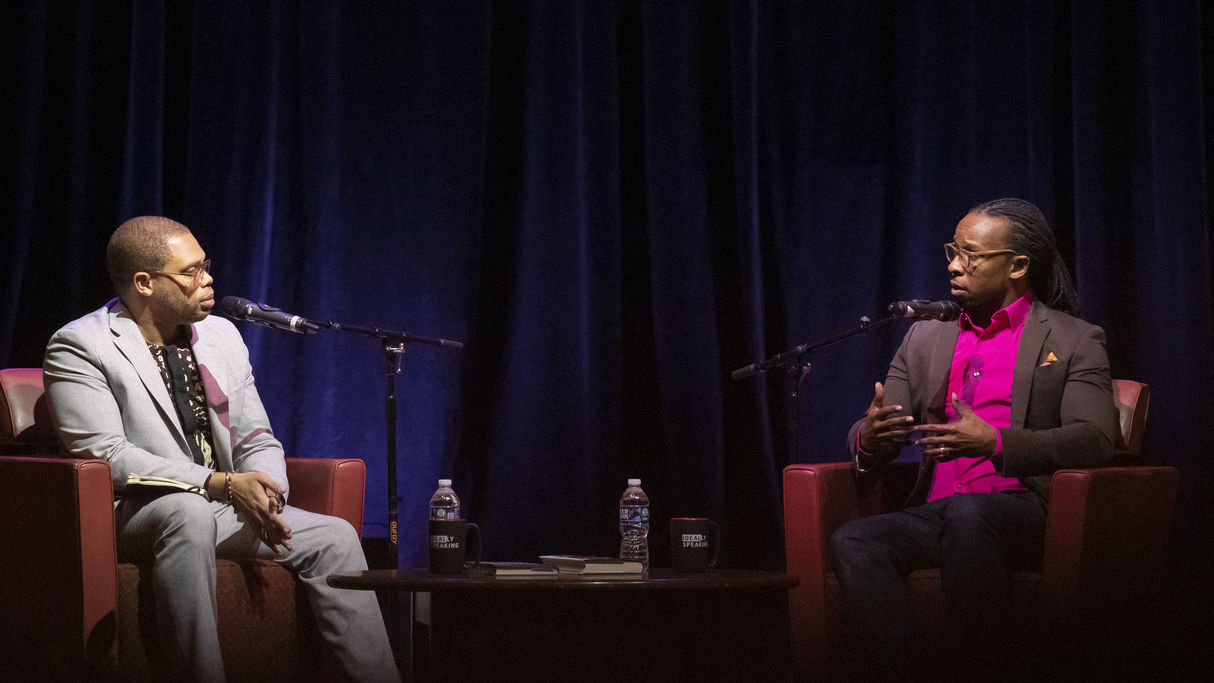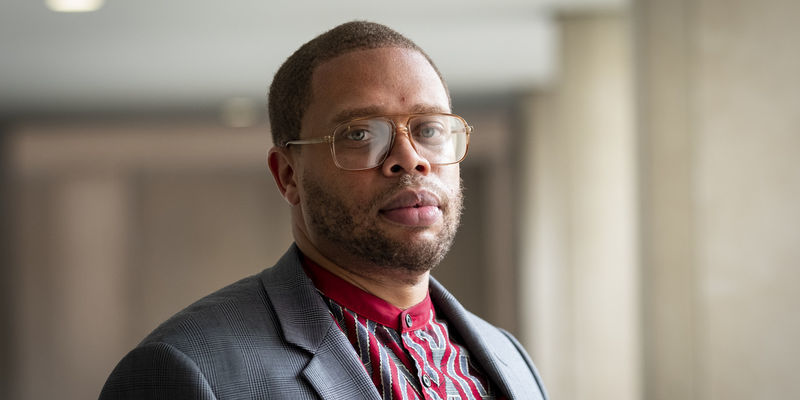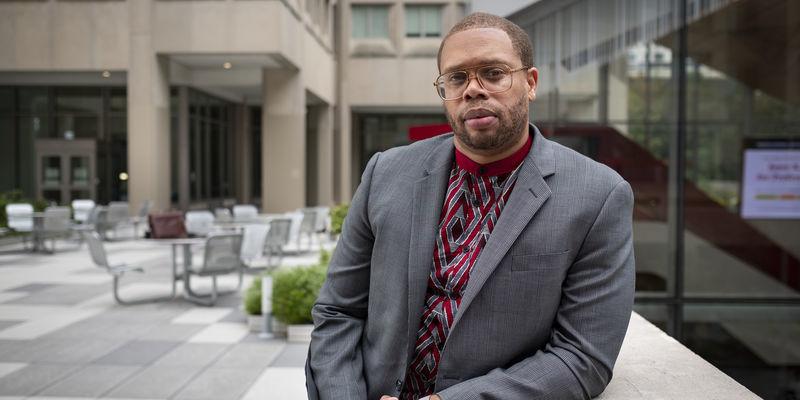Author and activist Ibram X. Kendi visits Temple for engaging conversation about racism
Temple University hosted “Ideally Speaking: A Conversation With Dr. Ibram X. Kendi ’10.” The conversation was moderated by Timothy Welbeck, director of the Center for Anti-Racism.

As he reflected on the current state of anti-racism work, Ibram X. Kendi, CLA ’07, ’10, said he thinks the nation is facing a crosswind.
During the wide-ranging candid discussion held on Jan. 31 at the Temple Performing Arts Center, Timothy Welbeck, director of the Temple University Center for Anti-Racism, asked Kendi about the attempts to suppress the teaching of Black history and mischaracterize critical race theory, the role of anti-racism work, and how racism is used as a distraction. The event was hosted by the Center for Anti-Racism.
Kendi is the author of the New York Times No.1 bestseller How to Be an Antiracist and the director of the Center for Antiracist Research at Boston University. While speaking about current efforts to suppress the teaching of Black history, he highlighted the historical significance of the 1960s Black campus movement. During that movement, students protested for the inclusion of Black studies at colleges and universities. Kendi wrote his dissertation on the movement while earning his doctoral degree in African American studies at Temple. He noted one of the reasons why students demanded Black studies was because it had been consistently suppressed in their curriculum.
“I am mentioning that because what is happening today is an effort to undermine that long history of students who themselves were organizing to introduce Black studies,” Kendi said. “Once they organized Black studies, then you had Black faculty who came in and really shaped this discipline and those of us who’ve been in Black studies know that we have always had to fight for our legitimacy.”
During the discussion, Welbeck quoted author Toni Morrison, who gave a 1975 keynote address at Portland State University. Morrison said that “the very serious function of racism is distraction. It keeps you from doing your work.”
“I wanted to get your thoughts on how we rise above the fray with so many distractions in our midst and stay focused on doing the work?” Welbeck asked Kendi. “There are so many efforts to try to discredit Black thought, Black people (and) Black ideas.”
Kendi addressed how racism is being used as a distraction from reckoning with a history of exploiting Black people. While conducting research for his book Stamped From the Beginning: The Definitive History of Racist Ideas in America, Kendi found that leading intellectuals were creating ideas that were used to justify or normalize existing racist policies.
“The reason why that is critical is because if you for instance think that nations in Africa are disproportionately poorer than nations in Europe because there is something wrong with African people, then it’s going to distract you from the history of colonialism,” he said. “It’s going to distract you from neocolonialism. It’s going to distract you from the extraction of multinational corporations.”
Kendi said racist sentiments are going to distract people from the inequity of the criminal punishment system and how it’s systematically hauling and caging Black people. “If you believe that Black people are more dangerous, violent and more criminal-like than let’s say white people, or any other group of people, it’s going to seem normal to you that Black people are overrepresented in prisons,” Kendi continued.
“So, you’re going to be consistently distracted by these racist ideas and if anything you’re going to be focused on Black people as opposed to the policies, structures and conditions that are harming Black people,” Kendi said.
Kendi went on to describe what people can hope to accomplish through anti-racism work in this current climate. “This is about liberation,” he explained. “This is about freedom. This is about freeing our people from the sort of shackles, whether conceptually or even structurally, of racism and it’s about freeing people of injustice and inequity.”
Kendi made his point while referring to Tyre Nichols, a 29-year-old Black man who died after being punched, kicked and pepper-sprayed by police officers in Memphis.
“It’s about allowing somebody who is just trying to get home from not having to be beat to a pulp by five officers and it also allows us to understand why five Black officers would do that and us not actually being shocked because we understand how deep anti-blackness is,” Kendi said, speaking candidly.
During the conversation, Kendi also addressed the importance of educating young people about taking a stance against racism. He partnered with Nic Stone for his new book for teens titled How to Be a (Young) Antiracist, an adaptation of How to Be an Antiracist.
“We started off talking about the role that students, in this case Black students, had in the emergence of Black studies. There is this long history of students and young people organizing for change and so that is what we certainly wanted to do with this book.
“I just think it’s critically important for young people to have an understanding about what racism is, because they are experiencing it, and more importantly to feel and to be empowered to transform it,” Kendi stated.


